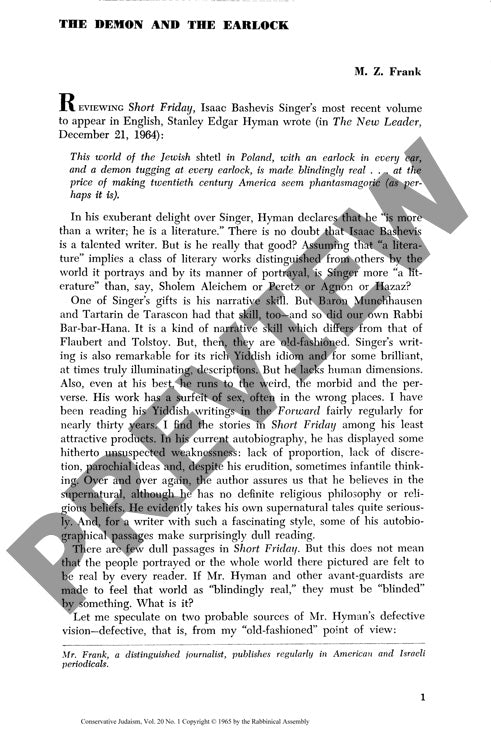The Demon and the Earlock
Couldn't load pickup availability
Isaac Bashevis Singer's celebrated portrayals of Eastern European Jewish life mask profound issues of authenticity and representation that have long divided critics along linguistic and cultural lines. Through comparative analysis of Singer's *Short Friday* against works by Yiddish writers Chaim Grade and Sarah Hammer-Jacklin, alongside systematic review of English and Yiddish literary criticism, striking disparities emerge between evaluations from critics versed in Yiddish literature and those without such cultural knowledge. While Singer achieved commercial success in English-language markets, Yiddish critics consistently challenged his tendency toward moral extremes, with characters inhabiting stark poles of angelic virtue or demonic vice rather than psychologically complex human dimensions. The research reveals how Singer's work gained prominence by providing contemporary literary markets with sensationalized Jewish narratives that simultaneously appeal to moral nihilism and exotic orientalism. This critical reassessment emphasizes the need to recognize alternative Yiddish writers whose works offer more nuanced, culturally authentic representations of Jewish life, while questioning how current literary gatekeeping mechanisms privilege sensationalism over cultural authenticity in Jewish-themed literature.

More Information
-
Physical Description
-
Publication Information
Published 1965
ISBN
-
Publication Credits
M. Frank

